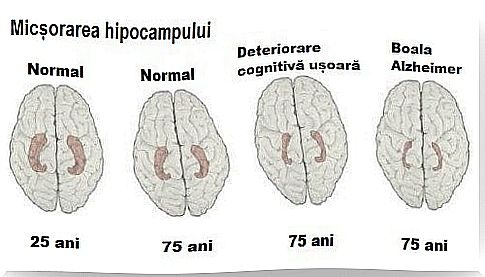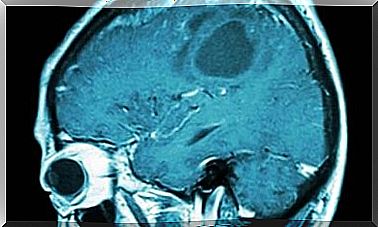Early Signs Of Alzheimer’s

Although it generally affects the elderly, young people can also suffer from this disease, the symptoms starting to appear even around the age of 30. You need to be able to recognize the early signs of Alzheimer’s for the early diagnosis and treatment of this disease.
Alzheimer’s disease is a progressive disease of the brain that directly affects a person’s memory, thinking and behavior. It is the most common form of dementia and is characterized by loss of memory and intellectual abilities, affecting the patient’s quality of life.
Between 60 and 80% of dementia cases worldwide are caused by this disease. It affects more than 5.4 million individuals in the United States alone. It is estimated that this figure will reach 16 million by 2030.
What are the early signs of Alzheimer’s?
Sudden changes in memory
Early signs of Alzheimer’s include forgetting recent information, such as important data and events.
Generally, when experiencing this symptom, the affected person uses a notebook or certain electronic devices to write down what they have been able to remember without problems.
Difficulty making plans or solving problems

Some people lose the ability to develop or follow a plan that involves working with numbers. They may have difficulty keeping up with simple things, such as preparing a familiar recipe or paying monthly bills.
Problems in performing family tasks
People with Alzheimer’s have difficulty coping with their daily tasks, both at home and at work. For example, they find it difficult to reach a familiar destination, manage a budget, or remember the rules of a familiar game.
Disorientation in time and space
As the disease progresses, the affected individual begins to forget the date, the seasons and is no longer aware of the passage of time. This symptom requires the patient’s supervision, as he may forget where he is and how he got there.
Loss of interest and motivation towards previously preferred activities

Emotional changes caused by Alzheimer’s disease can cause a person to lose interest in things they used to enjoy. Social isolation and sudden disinterest can indicate the presence of an irregularity.
Linguistic problems
Early signs of Alzheimer’s include difficulty following or participating in a conversation. This is due to the fact that the patient forgets some words. Moreover, he is no longer able to understand verbal or written communication.
He finds it difficult to find the right expressions and words, using, for example, the phrase “writing stick” to refer to a pen.
Forget the place of each object
Forgetting the location of each object is another early sign of Alzheimer’s disease. For example, the patient may put the iron in the refrigerator or forget where to put an object that was always kept in the same place.
Inability to make decisions

This disease can completely reduce or rob a person of the ability to make important decisions, such as those related to the financial side.
I no longer know how to manage money and can end up giving large sums of money to sellers.
Lack of initiative
Lack of interest in family activities can be a worrying sign. Alzheimer’s disease leads to a loss of initiative to get involved in social activities, sports or various projects.
In addition, these changes can lead to a total disinterest in engaging in any kind of activity that involves interacting with other people.
Changes in mood or personality
Changes in the mood or personality of the individual are the most obvious indication of Alzheimer’s disease. They manifest both in the early stages of the disease and in the advanced ones.
The affected person is often confused, suspicious, depressed, fearful or anxious. In addition, it can make people around you angry or angry.









